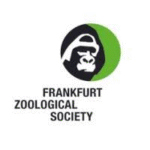About Company
The Frankfurt Zoological Society is an international conservation organization. From our offices in Frankfurt am Main, our staff coordinates projects in 18 countries.
Worldwide, 1277 colleagues work for FZS conservation projects. Our common goal is the conservation of wildlife and wilderness. We work where national parks and wilderness areas need our support.
Our partners include local communities, conservation authorities, national park administrations, and other NGOs. We support our partners in practical matters, without bureaucracy, and long-term.
Origins & History
-
Founded in 1858 to establish the Frankfurt Zoo, originally a joint-stock company of local citizens
-
After transferring zoo operations to the city, the society was re‑established as a nonprofit in 1958, shifting its mission toward global wildlife conservation .
-
Bernhard Grzimek, iconic zoo director and conservationist, led the transition into international work, especially in Africa .
🎯 Mission & Vision
-
The mission: “Conserve wildlife and ecosystems, focusing on protected areas and outstanding wild places.”
-
Vision emphasizes valuing wildlife for both intrinsic and economic reasons, serving present and future generations .
🌍 Global Reach & Key Regions
-
Headquarters in Frankfurt am Main, with ~1,300 staff across approximately 18 countries .
-
Africa: Major presence in Tanzania (Serengeti, Selous, Mahale), plus work in Zimbabwe, Zambia, and DR Congo .
-
Asia: Focus on Sumatra’s Bukit Tigapuluh for orangutan reintroduction, Kazakhstan’s grasslands (saiga antelope) .
-
South America: Amazon and Andean foothill forest protection in Peru .
-
Europe: Restoring wilderness in Germany and establishing networks of protected areas, and stepping into Kazakhstan wetlands .
🛠 Core Activities
-
Field conservation: logistical support, ranger training, wildlife monitoring, anti-poaching patrols .
-
Community integration: partnerships with Indigenous Peoples and local communities, promoting sustainable livelihoods .
-
Research & education: scientific monitoring, running programs like the Frankfurt Spring School (project management training for future conservationists) .
-
Land acquisition: securing and linking wilderness zones (e.g., former military lands in Germany) .
💡 Signature Initiatives
-
Community Conservation Banks (COCOBAs) in Tanzania: Microcredit groups guiding former poachers into sustainable livelihoods like beekeeping, reducing wildlife poaching .
-
Serengeti De‑snaring: Partnerships in Tanzania including ranger-led efforts to remove snares and employ ex-poachers .
-
Frankfurt Spring School on Conservation Project Management: Annual four‑week training in Germany for emerging conservation leaders .
🏛 Frankfurt Zoo Partnership
-
FZS originally operated the Frankfurt Zoo; today, it acts as the zoo’s development association .
-
Visitors can add a €1 “Nature Conservation Euro” to their ticket—100% funds FZS field projects .
-
The Frankfurt Conservation Center in development will centralize research and conservation coordination .
🏆 Governance & Support
-
Led by President Klaus Becker and Managing Director Dr. Christof Schenck .
-
Funded through donations, grants, NGO collaborations, and financial vehicles like the 2001 “Help for Threatened Wildlife” foundation .
-
Active global partnership network includes governments, NGOs, universities, local communities, and indigenous groups .
✅ Summary
FZS is a pioneer in long-term, science-driven, community-based conservation, spanning continents and ecosystems. From its origins running the Frankfurt Zoo, it has grown into a powerful global conservation leader, promoting integrated solutions—ecological, social, and economic—through partnerships and systems thinking.



Be a First Reviewer